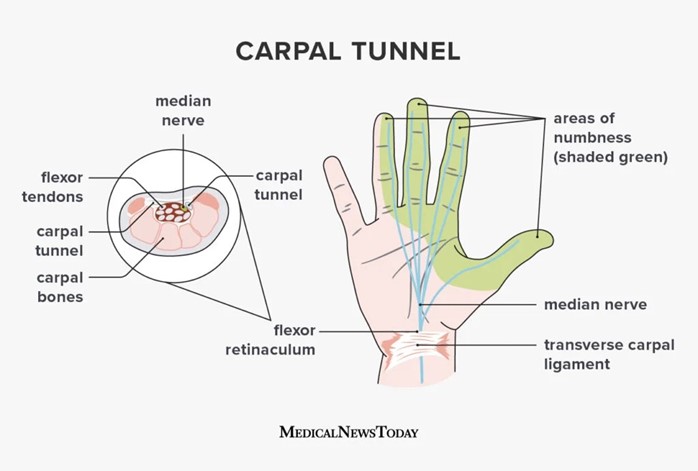The nurse is providing education on epidemiology to a nursing student. Which of the following statements indicates the importance of epidemiology to the community health nurse? SELECT ALL THAT APPLY
Epidemiology interprets legislation in the community
Epidemiology relates to the health status of a population
Epidemiology analyzes and examines the root causes of health outcomes
Epidemiology evaluates the effectiveness of nursing interventions
Epidemiology defines the burden of disease and determinants of health
Correct Answer : B,C,D,E
Choice A reason: Epidemiology interprets legislation in the community is not a statement that indicates the importance of epidemiology to the community health nurse. Epidemiology is not directly involved in interpreting legislation, but rather in providing evidence and recommendations that can inform policy-making and law-making.
Choice B reason: Epidemiology relates to the health status of a population is a statement that indicates the importance of epidemiology to the community health nurse. Epidemiology is the study of how diseases and other health-related factors are distributed and determined in populations. It helps the community health nurse to identify and monitor health problems, trends, and disparities in different groups and areas.
Choice C reason: Epidemiology analyzes and examines the root causes of health outcomes is a statement that indicates the importance of epidemiology to the community health nurse. Epidemiology uses various methods and tools to investigate and explain the causes and consequences of diseases and other health-related events. It helps the community health nurse to understand and address the complex and multifactorial factors that influence health, such as biological, environmental, social, behavioral, and economic factors.
Choice D reason: Epidemiology evaluates the effectiveness of nursing interventions is a statement that indicates the importance of epidemiology to the community health nurse. Epidemiology applies scientific principles and rigorous designs to assess and compare the outcomes and impacts of different interventions and programs on health. It helps the community health nurse to plan, implement, and evaluate evidence-based practices and policies that can improve health and quality of life.
Choice E reason: Epidemiology defines the burden of disease and determinants of health is a statement that indicates the importance of epidemiology to the community health nurse. Epidemiology measures and compares the frequency, severity, and impact of diseases and other health-related conditions on populations. It helps the community health nurse to prioritize and allocate resources, as well as to advocate for health equity and social justice.
Nursing Test Bank
Naxlex Comprehensive Predictor Exams
Related Questions
Correct Answer is B
Explanation
Choice A: Collaborate with a physical therapist to develop programs for injured employees to return to work. This is incorrect because this is a tertiary prevention strategy, not a secondary prevention strategy. Tertiary prevention aims to restore function and prevent disability or complications after an injury or illness has occurred.
Choice B: Help plant workers identify signs of carpal tunnel syndrome. This is correct because this is a secondary prevention strategy. Secondary prevention aims to detect and treat health problems early before they become more serious or chronic. Carpal tunnel syndrome is a common occupational health problem that can cause pain, numbness, and weakness in the hand and wrist. Early identification and treatment can prevent permanent nerve damage and disability.
Choice C: Organize an influenza immunization campaign. This is incorrect because this is a primary prevention strategy, not a secondary prevention strategy. Primary prevention aims to prevent disease or injury from occurring in the first place, by reducing exposure or risk factors. Influenza immunization can protect plant workers from getting infected by the flu virus and reduce the spread of the disease.
Choice D: Teach plant workers about proper lifting techniques. This is incorrect because this is also a primary prevention strategy, not a secondary prevention strategy. Proper lifting techniques can prevent musculoskeletal injuries such as sprains, strains, and herniated discs, by avoiding excessive stress on the spine and joints.

Correct Answer is D
Explanation
Choice A: Encourage community members to practice fire drills. This is incorrect because fire drills are a part of the preparedness phase, not the prevention/mitigation phase. The prevention/mitigation phase aims to reduce the risk and impact of disasters, while the preparedness phase aims to enhance the readiness and response capacity of individuals and communities.
Choice B: Identify community members who have disabilities. This is incorrect because identifying community members who have disabilities is also a part of the preparedness phase, not the prevention/mitigation phase. The prevention/mitigation phase focuses on actions that can prevent or minimize the occurrence or effects of disasters, such as installing smoke detectors, reinforcing buildings, or creating evacuation routes.
Choice C: Provide first aid to community members affected by a tornado. This is incorrect because providing first aid to community members affected by a tornado is a part of the response phase, not the prevention/mitigation phase. The response phase involves immediate actions to save lives, protect property, and meet basic needs after a disaster occurs.
Choice D: Assist community members in developing a disaster plan. This is correct because assisting community members in developing a disaster plan is a part of the prevention/mitigation phase. A disaster plan can help identify potential hazards, assess vulnerabilities, establish goals and objectives, and implement strategies to reduce the risk and impact of disasters.
Whether you are a student looking to ace your exams or a practicing nurse seeking to enhance your expertise , our nursing education contents will empower you with the confidence and competence to make a difference in the lives of patients and become a respected leader in the healthcare field.
Visit Naxlex, invest in your future and unlock endless possibilities with our unparalleled nursing education contents today
Report Wrong Answer on the Current Question
Do you disagree with the answer? If yes, what is your expected answer? Explain.
Kindly be descriptive with the issue you are facing.
